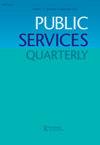学术图书馆的实践社区:实施战略
Q3 Social Sciences
引用次数: 0
摘要
各章从学术图书馆、社区学院图书馆、公共图书馆和档案馆等不同图书馆的角度,介绍了图书馆员的工作技巧、计划编制、馆藏开发和招聘实践等内容。这些章节从特定的图书馆员群体或图书馆单位出发,概述他们遇到的问题以及如何解决这些问题,到通过全国性调查收集定量数据的研究。各章节不是按类似主题或图书馆类型进行分组,而是按混合方式进行编排。这种安排使读者在从头读到尾的过程中可以经常转移注意力;而当读者试图研究一个特定的主题或观点时,这种安排就成了问题。所包含的章节相对较短,从 9 页到 17 页不等,大多数章节为 15 页,并且由知识渊博、经验丰富的图书馆员、大学教师和学者撰写,这一点在 "关于编者和撰稿人 "部分可以得到证明。书中还附有索引。可持续在线图书馆服务和资源:从大流行病中学习》与大量由图书馆撰写或为图书馆撰写的 COVID-19 大流行病文献相呼应,但在检查和评估所做的改变以确定其是否值得或能否长期保持方面提出了独特的观点。由于大部分章节都以学术图书馆为重点,学术图书馆员会发现了解哪些针对读者和员工的服务和资源有可能在未来继续存在的价值。他们还将欣赏 "分配的其他职责(和场所)"一章:该章认为,"分配的其他职责 "这种速效方法无法持续支持向在线学习的永久性转变,并鼓励重新评估什么是战略性前进所必需的。虽然该书整体上存在身份危机--它究竟是一本关于在线学习的书,如引言中所述,还是一本关于图书馆服务和资源的书,而且有些章节对图书馆服务和资源的评估和可持续发展建议的论述有时不够深入,但它仍能在学术图书馆的专业藏书中找到一席之地。毕竟,编者说 "图书馆的未来将取决于图书馆员、教师和设计者从这些转变中学习和成长的能力"(第 viii 页)是正确的。本文章由计算机程序翻译,如有差异,请以英文原文为准。
Communities of practice in the academic library: strategies for implementation
vice techniques, programming, collection development, and hiring practices, among others, and are presented from the perspective of a variety of libraries including academic, community college, and public libraries, as well as archives. Chapters range from a specific group of librarians or library unit outlining the problem they experienced and how they addressed it to studies examining quantitative data collected via national survey. Rather than grouping chapters reflecting similar topics or library type, chapters are arranged in a mix. This arrangement allows the reader to frequently shift their focus as they read from cover to cover; it becomes problematic when the reader seeks to investigate a specific topic or perspective. Included chapters are relatively short, ranging from nine to 17 pages, with the majority sitting at 15 pages, and are written by knowledgeable, experienced librarians, university faculty, and scholars as evidenced in the “About the Editors and Contributors” section. An index is also included. Sustainable Online Library Services and Resources: Learning From the Pandemic echoes the significant amount of COVID-19 pandemic literature written by and for libraries but presents a unique viewpoint in examining and evaluating the changes made to determine if they are, or could be, worth sustaining long term. As the majority of chapters are academic library focused, academic librarians will find value in learning what services and resources, aimed at both patrons and staff, are likely to continue into the future. They will also appreciate the chapter “Other Duties (and Places) as Assigned: How Analog Approaches Are Impeding Progress in Online Librarianship,” which argues that the quickfix approach of “other duties as assigned” cannot sustainably support the permanent shift toward online learning and encourages the reevaluation of what is necessary to move forward strategically. Though the book as a whole suffers from an identity crisis—is it a book about online learning, as presented in the introduction, or one about library services and resources—and has chapters that are sometimes light on evaluation and sustainability recommendations for library services and resources, it will find a home in the academic library’s professional collection. After all, the editors are correct in saying “the future of libraries will depend on the ability of librarians, teachers, and designers to learn and grow from these transitions” (p. viii).
求助全文
通过发布文献求助,成功后即可免费获取论文全文。
去求助
来源期刊

Public Services Quarterly
Social Sciences-Library and Information Sciences
CiteScore
0.90
自引率
0.00%
发文量
38
期刊介绍:
Public Services Quarterly covers a broad spectrum of public service issues in academic libraries, presenting practical strategies for implementing new initiatives and research-based insights into effective practices. The journal publishes research-based and theoretical articles as well as case studies that advance the understanding of public services, including reference and research assistance, information literacy instruction, access and delivery services, and other services to patrons. Articles may examine creative ways to use technology to assist students and faculty. Practice-based articles should be thoroughly grounded in the literature and should situate the work done in one library into the larger context of the situation.
 求助内容:
求助内容: 应助结果提醒方式:
应助结果提醒方式:


